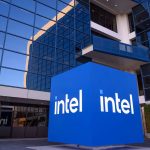
Oracle has deployed OpenAI’s GPT-5 across its cloud services and SaaS applications, extending generative AI to databases, HR, finance, and supply chain tools. The move underscores the growing pressure on cloud providers to integrate AI natively into enterprise software.
Oracle expands AI footprint
Oracle announced on August 18 that GPT-5 is now available across Oracle Database, Oracle Fusion Cloud Applications, and NetSuite. The rollout introduces generative AI assistance directly inside common workflows, from drafting job descriptions in HR to summarizing customer interactions in customer experience platforms.
As enterprises aim to better govern AI adoption and avoid shadow AI, structured governance and tool consolidation are more important than ever. Unlike some competitors that require customers to add third-party AI integrations, Oracle is positioning GPT-5 as a built-in capability.
“By embedding GPT-5 across our cloud and applications, Oracle is making generative AI available to every customer, directly within the tools they already use,” the company said in its announcement.
GPT-5’s technical promise
OpenAI released GPT-5 earlier this month with notable performance gains over GPT-4.1. Independent testing showed the model scored 74.9% on the SWE-bench Verified coding benchmark, outperforming peers on code reasoning, and delivered a 65% reduction in hallucinations compared to earlier models. It also offers a 512,000-token context window and a “thinking mode” for more complex reasoning.
These benchmarks help explain Oracle’s decision to embed GPT-5 deeply into its products. In Oracle Database, for example, business analysts can query data in natural language rather than relying solely on SQL. In Fusion Applications, GPT-5 is designed to speed tasks such as generating financial reports or creating supply chain forecasts.
Analyst perspective: Strength and caution
Analysts note GPT-5 is a versatile model that advances AI assistants but also stress that enterprise infrastructure for large-scale adoption remains uneven. That gap means IT leaders should view Oracle’s rollout as an enabler of productivity, not a turnkey transformation. Organizations will still need governance frameworks, cost management strategies, and strong data pipelines to make AI outputs reliable at scale.
For example, many organizations are hesitant about adopting fragmented AI tools and prefer a unified AI strategy that balances innovation and trust.
Competing in an AI-heavy market
Oracle’s announcement comes as cloud rivals intensify their own AI efforts. Microsoft continues to expand access to OpenAI models through Azure and has infused generative AI into its Microsoft 365 suite. Amazon Web Services offers multiple large language models, including Anthropic’s Claude and AI21’s Jurassic, through its Bedrock service. Google has integrated its Gemini AI across Workspace and Google Cloud.
What differentiates Oracle is its decision to integrate GPT-5 not just at the infrastructure layer but directly into business-critical SaaS tools such as Fusion Applications and NetSuite. That could appeal to enterprises looking for AI that enhances existing workflows rather than requiring separate adoption paths.
Still, Oracle faces a challenge in convincing customers that its AI services are as robust and trustworthy as those of rivals with broader developer ecosystems.
Costs and enterprise adoption
Generative AI at scale is not cost-free. GPT-5’s pricing reflects its higher capabilities: OpenAI charges $1.25 per million input tokens and $5 per million output tokens at standard rates.
Enterprises must monitor usage carefully and explore architectural strategies — such as modular stacking and retrieval-augmented generation (RAG) — to balance performance with cost-efficiency and accuracy.
What it means for IT leaders
For CIOs and IT decision-makers, Oracle’s GPT-5 integration signals a clear trajectory: Generative AI is becoming a standard feature of enterprise software, not an optional add-on. That offers the potential to improve productivity across departments but also increases the urgency of addressing AI governance, compliance, and budget considerations.
Adoption speed, user trust, and measurable ROI will be key factors in whether GPT-5 becomes a differentiator for Oracle in the cloud market.





